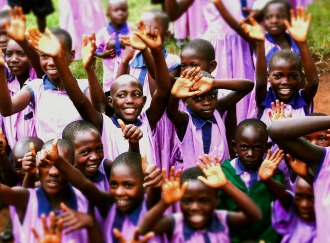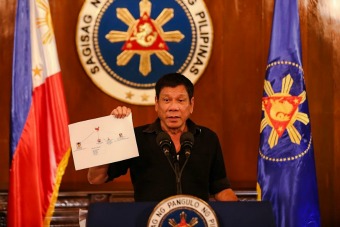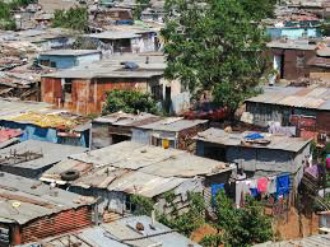Africa has been the face of poverty for a long time now. People from other countries see Africa as a nation devoid of opportunities for economic, professional, and personal growth and for good reasons. Even the Africans themselves experience extreme hunger, poverty, famine, and economic and political oppression and are a picture of stick-thin people who are deprived of even the most basic of human needs, even access to clean drinking water. It’s depressing to see people suffer when they live in a continent that is innately rich in natural resources that are sadly not put into good use because political leaders aren’t capable of making the change the continent need for progress.
 Like in any other nation, we all think of the youth as the hope of the future. After all, they will be the ones to lead us all someday. But what if the youth don’t have access to the tools they need to be effective and efficient future leaders like food, clothing, shelter, and most importantly, a quality education? What is in store for a continent like Africa that has always been struggling to provide for its citizens and often rely on foreign help even just to survive?
Like in any other nation, we all think of the youth as the hope of the future. After all, they will be the ones to lead us all someday. But what if the youth don’t have access to the tools they need to be effective and efficient future leaders like food, clothing, shelter, and most importantly, a quality education? What is in store for a continent like Africa that has always been struggling to provide for its citizens and often rely on foreign help even just to survive?
Then old age question is how to develop and in fact proper question now is “how to achieve sustainable development.”
Before we try to find an answer to this topical question, it is useful for us to know why we inAfrica have not achieved much successes in providing better health, education, employment, and a clean environment: the critical indicators of “sustainable development.
Well, there are predominantly two views: (i) Africans are deliberately kept poor by their colonisers, and the other view is that “the road to hell is paved with good intentions” holds true: Western model of development, that took centuries for the ideas of development to its fruition, is being applied to Africa and hence does not work. In fact, did not work.
It did not work or at least liase the intentions of the “good doers” were: despite over 40 years of aid-based development initiatives with the generous sums of billions of dollars, life of fellow Africans has not changed that much. So, we are back to the same question: How do we achieve sustainable development inAfrica in general and Zambia in particular.
(Via: https://www.daily-mail.co.zm/role-of-african-youth-in-sustainable-development/)
It makes perfect sense to invest more on African youth because of the unprecedented youth bulge in this fairly young and developing continent. Roughly 65% of the African population ages 35 and below. It can be an opportunity or a problem depending on how African leaders see it and what course of action they will take but it proves to be a challenging ordeal that present leaders must address.
RLabs’ goal is to ensure students are able to access long-term and sustained employment as well as provide young people safe spaces to learn skills like project and event management, coding, and photography. After advancing through the program, approximately 80 percent of graduates find employment, aided by the hard and soft skills they have gained. As Coetzee describes it, “The community believes in the power of youth; youth teaching other youth. We are giving youth the tools to change themselves as well as their communities.”
Social innovators across Africa are leading a shift away from the traditional mindset that Africa’s youth are problems to be solved. They know that trusting youth to lead by giving them opportunities to make real decisions, have their voices consistently heard, and make meaningful contributions to their communities ensures young people avoid long periods of “waithood” before fully entering adulthood. RLabs founder Marlon Parker explains: “It is possible to get a young person in a short space of time from being someone that says 'Oh, my needs are not being met,' complaining and not knowing what to do,” to instead, “getting [them] to a place where they could see they are now contributing to society.”
(Via: http://www.worldpolicy.org/blog/2017/06/06/youth-must-be-trusted-lead-africa)
Taking shortcuts can’t solve Africa’s problems. Leaders and adults alike should be proactive in engaging the African youth early on by assigning them leadership roles to hone them and teach them the skills needed to be successful someday. Even if the youth is far higher in number than adults, African adults should still find the time to guide them and offer support if necessary to prepare them for Adulting and just about everything else. By teaching them young, the youth have more time to learn valuable knowledge, values, and skills they need the most when it is finally their time to lead Africa.
African Youth: The Hope Of A Forever Struggling Continent was first published on The Naked Conversations Blog
from
https://www.nakedconversations.com/african-youth-the-hope-of-a-forever-struggling-continent/





